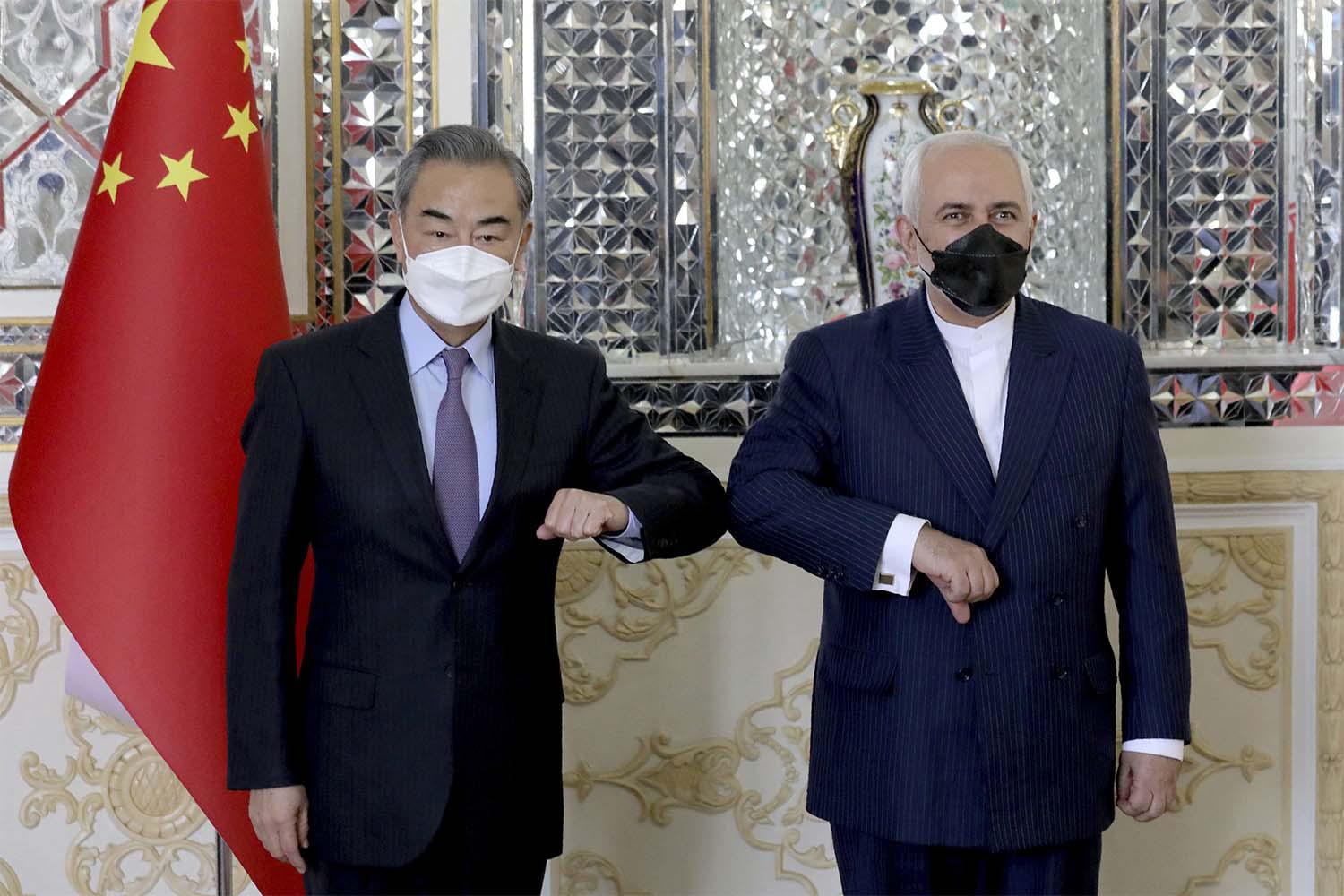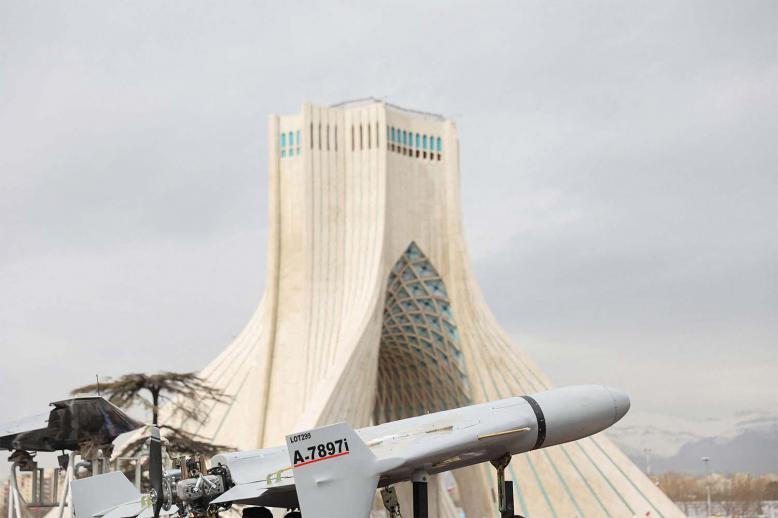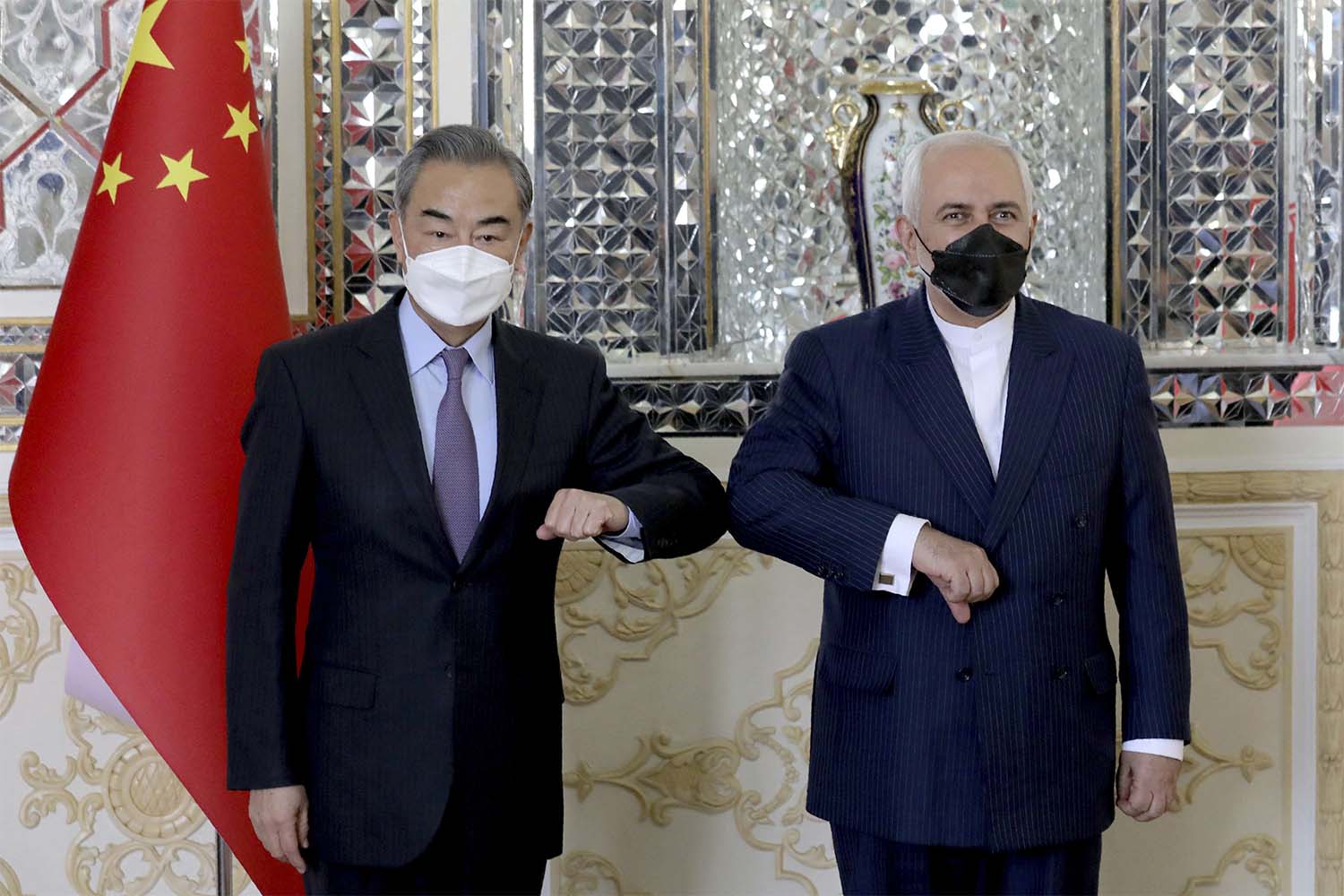Iraq and the Chinese-Iranian agreement
China has recently concluded an important agreement with Iran, which extends for 25 years and includes various sectors between them.
It is expected that this agreement will lead to important geopolitical transformations in the whole region; Iraq will not be isolated from the repercussions of this.
The crucial point in this context lies in the absence of critical dialogues about that agreement. Furthermore, media outlets do not focus on how some Iranian intellectuals oppose such an agreement.
No one talked about the protests – albeit in a limited way – in some Iranian cities to denounce this agreement and to assert that “Iran is not for sale.” This is exactly what the Iraqi public opinion knows nothing about.
Immediately after that, many voices rose in the Iraqi media to call Iraqi politicians for the activation of the agreement that Iraq allegedly signed with China during the era of the former Prime Minister Adel Abdul Mahdi.
Some commentators began to promote that the Iranian-Chinese agreement was primarily inspired by Abdul Mahdi's thoughts himself. Others went so far as to say that the Chinese government asked Abdul Mahdi to be an advisor for its affairs in the Middle East. This is the opinion that many received and turned into a propaganda speech in the media and social networking sites to cheat the public opinion.
The strange thing is that the current Prime Minister, Mustafa Al-Kadhimi, directed to initiate the implementation of this proposed agreement with China. I am afraid that he was trying to identify with the reactions that appeared in the media. I am also afraid he gave a negative impression about his haste in formulating such strategic positions without taking into account how the other great powers view this step.
In return, many local media outlets are still attacking him and classifying him as an ally and sometimes accusing him of being an agent of the United States of America. As well, they confirm that his latest decision to activate the Chinese-Iraqi agreement will not compel them to amend their position from his role in the Iraqi arena.
So far, there has been no logical answer in the government and cognitive circles to the nature of the expected reactions of the American administration towards the desire of some parties pushing towards joining the Chines-Iranian agreement. Nevertheless, there is now an urgent need to monitor and follow what is coming from important authorities and personalities in the US towards these major changes.
Lately, many opinions and articles have warned of the Biden administration outcome towards the Chinese expansion across the Iranian geography to the region that the Washington classifies as a destiny area crucial to its interests and influence.
Such personalities are expected to look at the new strategic weight that Iran might begin to characterize. China might support the Iranian presence in this region. Consequently, this will be opposed to Washington’s ambitions. Many indicators assure there would be an increase in the Chinese-Iranian presence in the Iraqi economy. For some, this means an important setback in the American strategy in this place.
It is also anticipated that China will exploit this economic penetration to its favour. It can contribute to the production of internal settlements in Iraq, and perhaps also work to the encouragement of the Iraqi-Arab compromises. This will allow China to compete with the American diplomatic model that has suffered greatly to persuade the Arab region to accept post-2003 Iraq.
This will also be interpreted as an attempt to produce an important axis that extends from Beijing to Tehran-Damascus via Baghdad. It is an influential strategic pact that will work greatly to tighten US allies, specifically in the Gulf Arab region.
There are fears that China might be able to enter into the depth of geopolitical interactions in this region. This may enable Beijing to produce stable military bases that, for the first time in contemporary history, will allow it to have an official presence in one of the most important countries of this coalition, which is Iran.
There is now a widespread belief in the American circles that there are certain Shiite parties in Baghdad working to push for identification with the subject of the chines-Iranian agreement. What implicitly means, in one way or another, is that this side seeks to produce an alliance with China at the expense of losing any possible relationship with the US. This in itself is considered a major shift in the Shiite-American relations, which are mainly suffering from a major deterioration.
In light of the great enthusiasm now present in the Iraqi media to talk about the Chinese-Iranian agreement and its possible impact on the Iraqi situation, there is a kind of neglect of other important issues that may sabotage this project severely, including the size of the large local polarizations inside Iraq.
Unlike many Shiite politicians, a large number of Sunni and Kurdish figures are still clearly and overtly willing to continue the partnership with the American side in various fields. This will lead largely to a sort of clash in the Iraqi vision regarding the idea of indulging with the Chinese-Iranian agreement. These polarizations will largely affect the future of the fragile geopolitics of this country.
Also, there is another important viewpoint rising from the Shiite geography in Iraq. It is criticizing the practices of some government parties, describing their attempts to break the cooperation with the American side as a geopolitical sin. It affirms that the unfavourable results of this step cannot be easily resisted, and China will not be a real buffer that can be depended on when the zero-game competition between it and the US erupt in Iraq. This important voice will stimulate more support for its belief. It tends towards the reactivation of the terms of the relationship with the American side in a way serving Iraq’s interests. This, as many predict, will be a better alternative to the process of joining this agreement.
Anyone who followed Biden’s speech during his inauguration as US President is well aware that his speech was clearly and explicitly referring to China and Russia as the most important opponents at this stage. Americans assume that any penetration by those powers into the important arenas of the American interests will be considered a real challenge.
The White House worries that this might lead to threatening to bring a dangerous shift in the structure of the international system. All this proves that Iraqi policymakers must be wise and cautious in producing decisions. They must think carefully about the lessons of history before committing any error whose consequences are difficult to address in the long run.
As Iraqis, we must mention that there is a great illusion that some sides are now trying to market to the public opinion portraying China as the saviour of the Iraqi situation.
Some parties forget that China had not made any real step to pressure Saddam Hussein’s regime to amend its internal policies, especially towards the Shiite. They also deny that if China had to choose, it would not have hesitated to keep the Ba’ath regime in power as long as that brutal system would give Chinese companies a great space in the field of oil investments.
Diyari Salih is an Iraqi academic working at al-Mustansiriyah university. He holds a Ph.D. in Political Geography from the University of Baghdad and a Post-Doctorate in International Relations from the University of Warsaw. His research focuses on geopolitical issues in Iraq. He tweets at @DiyariFaily







